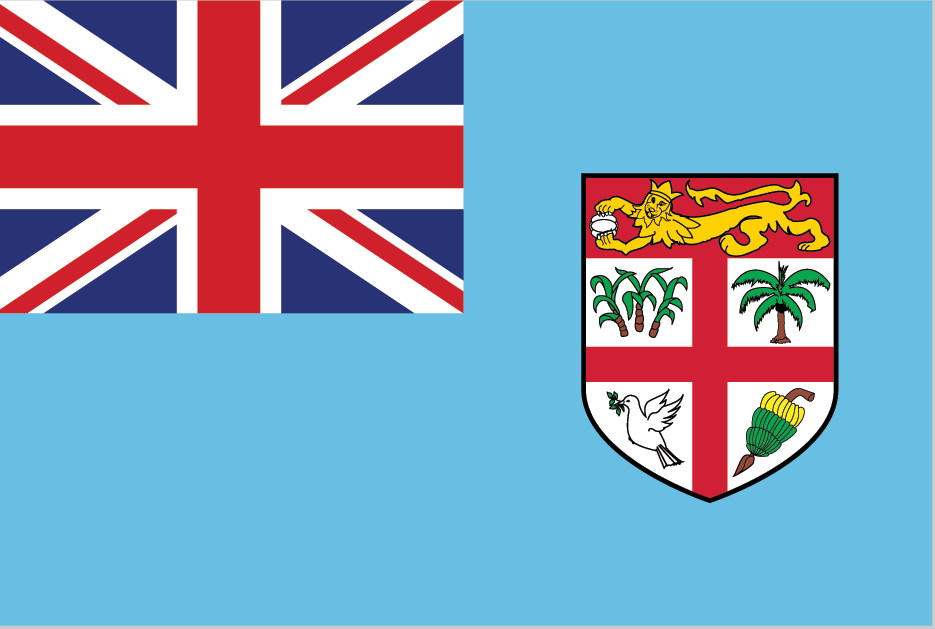
Sustainability Efforts
Country: Fiji
Explore sustainability efforts in Fiji. The United States Environmental Protection Agency (“EPA”) said it well when they state:
“Sustainability is based on a simple principle: Everything that we need for our survival and well-being depends, either directly or indirectly, on our natural environment. To pursue sustainability is to create and maintain the conditions under which humans and nature can exist in productive harmony to support present and future generations.”
About Fiji
Fiji, a country in the South Pacific, is known for its stunning natural beauty, warm hospitality, and vibrant culture. It is composed of 333 tropical islands, with Viti Levu and Vanua Levu being the largest. The capital city, Suva, offers a blend of modern and colonial architecture. Fiji is renowned for its pristine white-sand beaches, turquoise waters, and world-class diving spots along the Great Astrolabe Reef. The Fijian people embrace their cultural heritage through traditional ceremonies, music, and dance, such as the Meke. Rugby is a popular sport in Fiji, and the national team, the Flying Fijians, has achieved international success. Tourism, agriculture, and fishing are significant contributors to the country’s economy. Fiji’s warm climate, natural wonders, and friendly locals make it a popular destination for travelers seeking a tropical paradise experience. Sustainability efforts in Fiji will enhance the country’s future.
Sustainability Efforts
Toggle each button below to “open” and “close” the presented data.

Poverty: The Fijian government has been proactive in tackling poverty by implementing social protection schemes such as the Poverty Benefit Scheme (PBS) and the Social Pension Scheme (SPS). Efforts are also underway to provide opportunities for rural communities, including support for small and medium-sized enterprises (SMEs) and initiatives that boost agricultural productivity.

Hunger: Fiji has taken steps to ensure food security by promoting sustainable agriculture. Organizations like the Food and Agriculture Organization (FAO) have partnered with the local government to enhance nutrition-sensitive agricultural production, aiming to reduce the country's reliance on food imports and mitigate hunger.

Healthcare: Fiji has been focusing on improving public health infrastructure and services. Investments in clinics, training for medical personnel, and vaccination campaigns have increased over recent years. The nation has also worked to combat prevalent health issues such as non-communicable diseases with public awareness campaigns.

Education: The Fijian government places a high priority on education, offering free primary and secondary schooling to all. Additionally, initiatives like the "bus fare scheme" have been launched to ensure that transportation costs don't hinder students from attending school.

Gender Equality: Fiji is working towards gender equality through legislation and policy reforms. The National Gender Policy aims to mainstream gender issues across all sectors, promoting women's participation in economic and political arenas and combatting domestic violence.

Clean water sanitation: Access to clean water and sanitation is a priority for Fiji. The government has invested in water infrastructure, rainwater harvesting projects, and sanitation facilities, particularly targeting rural areas to ensure equitable distribution.

Affordable clean energy: With a vast potential for renewable energy sources, especially solar and hydroelectric power, Fiji is gradually reducing its dependency on fossil fuels. The aim is to achieve 100% renewable energy by 2030.

Economic growth: Fiji's economy, traditionally reliant on sugar exports and tourism, is diversifying. Investments in technology, sustainable agriculture, and local industries are spurring growth and providing more stable job opportunities.

Industry innovation: Fiji is encouraging industrial innovation through incentives for startups and by fostering a conducive environment for technology-driven solutions in sectors like agriculture, tourism, and communications.

Reduced inequalities: Efforts are being made to ensure that growth is inclusive. Policies focusing on rural development, infrastructure improvements, and support for marginalized groups are helping bridge the inequality gap.

Sustainable cities: Urban planning in cities like Suva takes sustainability into account. Initiatives such as improved waste management, public transport enhancements, and green spaces are integral to city development plans.

Responsible consumption and production: Fiji is promoting sustainable farming and fishing practices, along with eco-friendly tourism. There's also a push for recycling and waste reduction campaigns, emphasizing responsible consumption.

Climate action: As a Pacific Island nation, Fiji is particularly vulnerable to the effects of climate change. Efforts are in place to strengthen resilience against natural disasters, conduct reforestation projects, and protect coastal zones from erosion.

Life below water: Fiji's rich marine biodiversity is under threat due to overfishing and pollution. Conservation initiatives, such as marine protected areas and sustainable fishing practices, are being implemented to protect its marine ecosystem.

Life on land: Protecting Fiji's terrestrial biodiversity is essential. Conservation efforts focus on preserving native flora and fauna, preventing deforestation, and promoting sustainable land management practices.

Peace and justice: Good governance, transparent institutions, and a fair judiciary system are critical for Fiji. Efforts are ongoing to ensure the rule of law is upheld, human rights are protected, and social justice prevails.

Partnership for the goals: Fiji collaborates with regional partners, international organizations, and NGOs to achieve sustainable development goals. Joint projects, knowledge sharing, and financial assistance are part of this collaborative approach.



